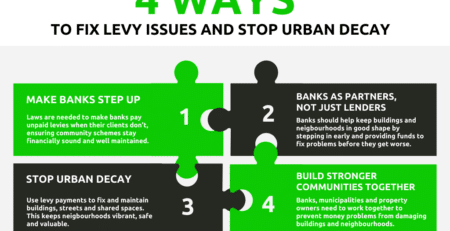To Airbnb or Not to Airbnb?
In January this year, the High Court of South Africa found in favour of a body corporate seeking to stop one of its members from using her unit for short-term leases on the Airbnb platform. The argument made by the body corporate, which ultimately proved successful, was that the owner was in breach of the approved Conduct Rules.
Following the almost five-year process, which started in 2016 when members of the Body Corporate of The Paddock (“The Paddock”) first raised their concerns about units being used for Airbnb rentals, it finally appears that the legal process has come to an end. This means that for the time being, a precedent has been set in Gauteng which may be followed in other jurisdictions.
Certain members of The Paddock had initially raised a concern that short-term letting posed several challenges as well as real security risks to the residents, however, at the time no rules were prohibiting it.
The members felt that as the identity of a short-term tenant was not known to the body corporate this made it possible for unauthorised people to enter the complex and masquerade as a short-term tenant and then cause injury to the persons or property within the complex.
Additionally, as the tenants may not have received a copy of the Conduct Rules, they may not be aware of the same which would make it difficult for the body corporate to enforce them. This may result in damage, noise, disturbances and a host of problems including using units for commercial purposes which the rules would usually negate.
These complaints lead to a meeting of the owners being called and ultimately the Conduct Rules were changed by way of a Special Resolution. The body corporate is governed by both the Sectional Titles Act 95 of 1986 and the new Sectional Titles Schemes Management Act 8 of 2011 (“the STSMA”) and their Regulations. The correct process was followed in the adoption of the new Conduct Rules and they were registered with the Community Scheme Ombud Service (“CSOS”).
Despite the fact that the change to the Conduct Rules followed due process, the offending owner was notified and then repeatedly warned, yet the unit was still continuously used for short-term Airbnb rentals. The owner admitted to breaching the Conduct Rules but felt that there was a justifiable reason to do so.
The owner felt that as the unit was purchased for investment purposes as well as to short term lease she was being unfairly prejudiced. Further, she felt that the change to the Conduct Rules was made after the unit was purchased and that Airbnb should not be considered commercial use.
During the legal process, the offending owner also argued that the Conduct Rules were adopted unlawfully and finally that the new Conduct Rule was an infringement of her constitutional right not to be arbitrarily deprived of her property. Section 25 (1) of the Constitution of the Republic of South Africa, 1996 reads:
“No one may be deprived of property except in terms of law of general application, and no law may permit arbitrary deprivation of property…”
All concerns were thoroughly explored by the High Court, including its pronouncement that nothing in the properly construed, validly approved and certified, Conduct Rules serves to arbitrarily deprive the owner of her right to property, which resulted in the following order:
- The owner is hereby directed to immediately cease from leasing the unit for a period shorter than 6 months.
- The owner be directed to immediately cease from utilising the unit and/or leasing the unit for commercial use and/or as a resort facility and/or a bed and breakfast.
- The owner be directed to provide copies of the lease agreements entered into between herself and future tenants of the units to the body corporate.
- The owner is ordered to pay the cost of the application.
- The leave to appeal application was also dismissed with costs due to there being no prospects of success.
Ultimately, bodies corporate are required to have Conduct Rules in place as they are binding by law on all owners and occupiers of the sectional title scheme. As the Conduct Rules of The Paddocks comply with the relevant legislation and were deemed to be for the benefit of all the owners and occupants, the court felt that it is essential that they be complied with.
In need of advice? Our legal advisory solutions provide community schemes and managing agents with expert opinion in the field of Community Scheme Law and Management. Contact us today





